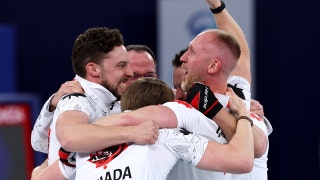New York, NY – The NHL and NHLPA resumed negotiations Tuesday, as the two sides continue to search for a resolution to the NHL lockout.
Following a two-hour meeting, NHL deputy commissioner Bill Daly didn't have encouraging news.
"No progress was made," said Daly, who indicated that talks Tuesday centered around hockey-related revenue. "Their general position is not to create certainty on some issues and to kick other issues to the resolution of the main issues."
After meeting for three straight days over the weekend, both sides took a step back on Monday to have internal discussions concerning a new collective bargaining agreement before getting back together on Tuesday.
"Today wasn't overly encouraging, that's for sure," lamented Daly on Tuesday. "We're looking for a long-term deal that's fair for the players, fair for the teams and good for the fans. That's what we want out of this negotiation and we need a negotiating partner to get there."
No additional discussions have been scheduled.
"I would imagine we'll be in touch over the next little while," Daly added. "If it makes sense to meet, we'll meet."
NHLPA special counsel Steve Fehr did not speak with reporters after leaving the conference.
The league has already canceled the entire preseason. Regular-season games, which are slated to start Oct. 11, may be next on the chopping block.
"We'll make an appropriate decision at the appropriate time," Daly said about the regular season. "We're still focused on doing what we can to minimize the damage. By losing our preseason, we've probably done close to $100 million in damage to the business that's not going to be recouped. That's going to cost both sides, and that's unfortunate, but it's a reality of where we are."
The owners locked out the players when the previous CBA expired at 11:59 p.m. (ET) on Sept. 15. Friday brought the first formal negotiating session since the lockout began.
Money, specifically revenues earmarked to players, remains at the center of the controversy. Under the expired CBA, players received 57 percent of hockey revenue. Owners reportedly want to reduce that number to as low as 47 percent.








































